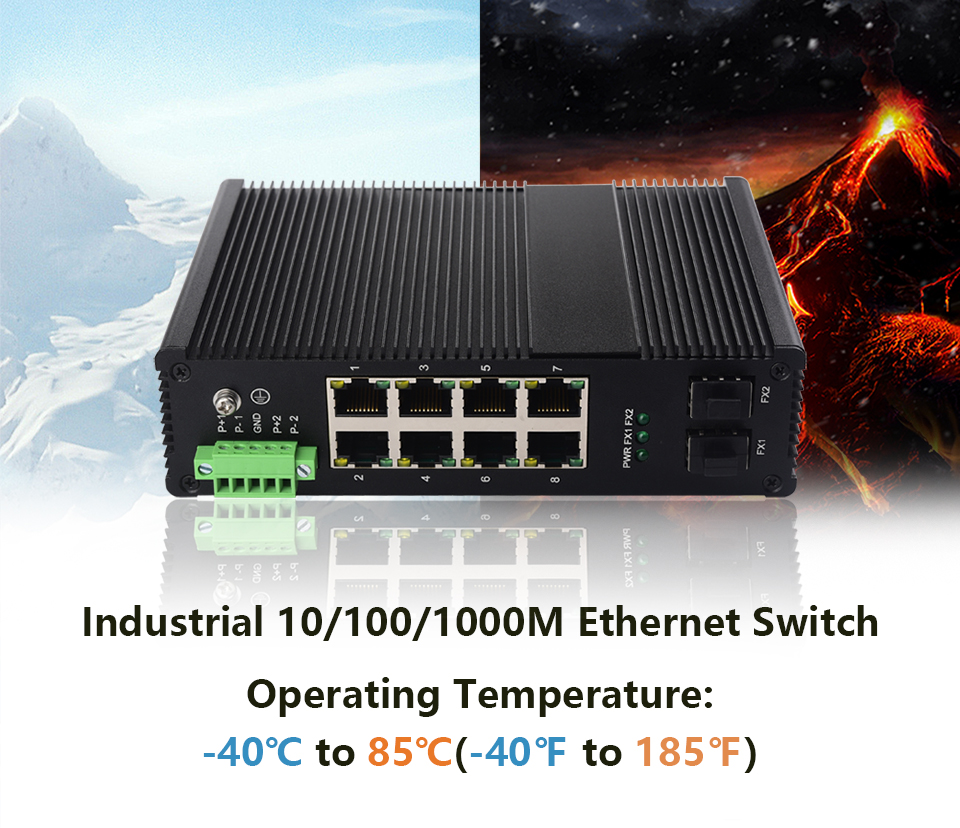Industrial switches feature carrier-grade performance to withstand harsh operating environments. Rich product series and flexible port configuration can meet the needs of various industrial fields. So the price is relatively more expensive than commercial switches, so why do many customers still choose industrial switches?
What are the advantages of industrial switches compared with ordinary commercial switches?
First of all, in terms of performance, there is not much difference between industrial switches and ordinary switches. From the perspective of network hierarchy, there are layer 2 switches and of course layer 3 switches. However, industrial switches are particular about the design of other products and the selection of components. It is oriented to the needs of industrial sites. It can still work normally in harsh environments such as machinery, climate, and electromagnetics. Therefore, industrial switches It is often widely used in industrial production scenarios with harsh conditions and higher requirements for product stability and safety performance.
1. Climate and environment:
Industrial switches can better adapt to poor weather conditions, including temperature, humidity, etc., and can be used normally in the ambient temperature of -40~+85°C, and the lightning protection of the product port is 3600V and above.
2. Working voltage:
Industrial switches have a wide operating voltage range, covering the range of DC 12V-48V, while ordinary switches have higher voltage requirements, and most of them are powered by fixed voltage.
3. Components:
Industrial switches have higher requirements for the selection of components. To better adapt to the needs of industrial production sites, components need to have anti-static, lightning protection, ultra-high and low temperature resistance and other requirements. Its shell material is aluminum alloy shell.
4. Electromagnetic environment:
Industrial switches have strong anti-electromagnetic interference capabilities, and the electromagnetic interference protection level reaches level 4.
5. Mechanical environment:
Industrial switches can better adapt to harsh mechanical environments, including vibration resistance, impact resistance, corrosion resistance, dustproof, waterproof, etc.
6. Power supply design:
Ordinary switches basically have a single power supply, while industrial switches have dual power supplies for mutual backup, and a power failure alarm function is also added.
7. Installation method:
Industrial switches can be installed in DIN rails, racks, etc. Ordinary switches generally use racks and desktops.
8. Heat dissipation method:
Industrial switches use a fanless case for heat dissipation, while ordinary switches use fans for heat dissipation.
9. Electromagnetic Compatibility
EN50081-2 (EMC, industry) EN50081-2 (EMC, office) EN50082-2 (EMC, industry) EN50082-2 (EMC, office). Industrial Ethernet switches meet EN50082-2 (EMC, industry).
Post time: Dec-02-2022






